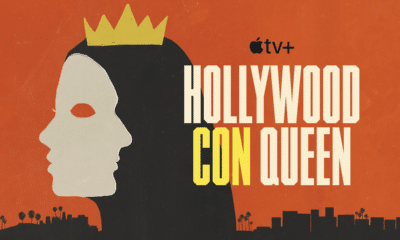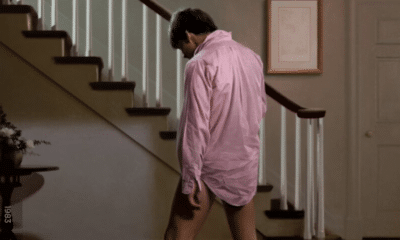Directed by Tony Bancroft and Barry Cook
1998/87 Minutes
The MULAN team began development in 1994 with a field trip to China; a three week voyage to photograph and draw local landmarks for inspiration and absorb local culture. In contrast to the angled, detailed artwork on THE LION KING and HUNCHBACK, the decision was made to simplify the style, paying homage to classical Chinese painting, which also provided the visuals for its opening credits. Despite its simpler artistry, MULAN was also innovative in its use of crowd simulation software (see “SCARES”) and saw the advent of Faux Plane, used to add depth to two-dimensional images, most notably during the opening sequence at the Great Wall of China and the final act in the Forbidden City.
Originally, MULAN would have been a much humbler, straight-to-video short film titled “China Doll”, effectively a Chinese take on Pocahontas II, in which an oppressed and miserable Chinese girl is saved from that life by a British “Prince Charming” and taken to live happily in the West. It was at the suggestion of then-consultant and children’s author Robert D. San Souci that Disney expanded the tale into an adaptation of the Chinese poem “The Song of Fa Mu Lan”, dating from the 6th Century AD.
SYNOPSIS: The Huns invade China, led by the ruthless and brilliant Shan Yu, breaking through the Great Wall with ease. The Emperor calls for one man from each family to serve in the Imperial Army.
After a ruinous meeting with the “Matchmaker”, socially awkward yet beautiful Fa Mulan learns that as the only man in her family, her elderly father – already a veteran of war – is to ride to battle once again. Dishonouring her family by pleading for him to be spared, and after a night of soul-searching, Mulan elects to take matters into her own hands; she steals her father’s armour and his sword, cuts her hair and rides out in his place. When her parents learn of her act, her father prays to his family ancestors to protect her. After an overlong council, the Ancestors elect the Great Stone Dragon to protect Mulan, but are (surprisingly) unaware when it fails to awaken, and that Mushu, a small, disgraced and insufferably annoying dragon, has gone in its place, hoping to regain his own honour.
Despite Mushu’s poor “advice”, Mulan Ping is able to blend in, somewhat, with the other cadets, a motley rabble placed under the command of the young Captain Li Shang. Under the Captain’s tutelage, and after the requisite training montage (mon-tage!), Ping and “his” new friends, Yao (the short brawler), Ling (the scrawny jokester) and Chien-Po (the gentle giant) become skilled warriors.
In an effort to ensure Mulan’s success – and by association regain his place in the temple – Mushi fakes a message from Li Shang’s father, General Li, ordering them into the mountains. But when they reach the rendezvous, they find a scorched encampment, and no survivors.
As they solemnly continue on their way, an accident with the rockets (possibly something to do with the fire-puffing dragon hitching a ride with high explosives… just a guess) brings the entire Hun army bearing down upon them. With only a handful of rockets left, Ping gambles on firing one into the mountain above the charging Huns, burying them in the resulting avalanche. In the fight, Ping saves the life of the Captain, but is slashed in the chest by Shan Yu.
When her wounds are tended to, Ping’s deception is revealed. Shang is honour-bound to execute Mulan for her actions, but spares her life to repay his debt. Expelling her from the army and leaving her behind, Shang and the remnants of his forces ride for the Imperial City with news of the Huns’ defeat… except a few Huns manage to survive, Shan Yu amongst them.
Mulan discovers this, but as she rides to warn Shang, he refuses to listen, having been betrayed already, and so he’s too late to stop the remaining Huns from taking the Emperor hostage and barricading themselves within the Palace. With Mulan’s help, Yao, Ling and Chien-Po disguise themselves as concubines to sneak into the palace and “distract” the Huns, while Shang and Mulan save the Emperor and defeat Shan Yu once and for all, with a little help from Mushu.
Mulan is praised by the Emperor, who shows the ultimate honour by bowing to her, along with the assembled people of China. She graciously declines a place in his court as his advisor, accepting the Emperor’s quest and Shan Yu’s blade as gifts, and proof of her great deeds.
Mulan returns home and offers these gifts to her father, who cares only that his daughter is home safely. Her mother and grandmother are more than pleased when Shang arrives to ‘return Mulan’s helmet’, having been encouraged to court her by the Emperor; “You don’t meet a girl like that every dynasty!”
Oh, and Mushu gets his place in the Ancestral shrine back. Not that he’s humble about it or anything.
Lessons learned:
1. It’s your actions and your spirit that define who you are, not your place in society.
2. Sometimes your greatest weaknesses are your preconceptions.
3. Eddie Murphy is annoying. Very annoying.
The Heroine
![]()
Based upon a character in Chinese folklore, Fa Mulan is a courageous, self-reliant tomboy who is completely alien to the world she inhabits. Her strength of will and willingness to speak her mind land her in hot water at least three times in the first half hour of the film, and that’s before the lizard shows up. Mulan is a very modern heroine, naturally beautiful but socially awkward, clumsy and warm-hearted. As Ping, Mulan’s strengths start to surface; her determination to be proved equal, if not as a woman than as a soldier, and as she finds her feet amongst her new comrades in arms, the film finds its forward momentum, and sets her apart as a Disney heroine who actually takes an active role in what’s actually happening in the movie.
Lea Salonga, who was the singing voice for Princess Jasmine 6 years prior, also does the singing for Mulan; she was originally set to voice the character for the whole film, but she couldn’t voice Ping convincingly, so Ming-Na Wen was cast for the lead vocals.
The Hero
![]()
BD Wong voices Li Shang, a brave but untested Captain, having to fight to prove himself when others, notably Chi-Fu, think he hasn’t earned his place but rather been given it by his father, the General. Whilst being a strong leader and tactician, he’s a bit of a social outcast, probably due to spending his life studying to be where he is. He has just as much of a journey as Mulan, taking up the task of defending China from the Huns, and silencing his detractors. Donnie Osmond provided his singing voice. No, really.
The Villains
![]()
A hardened and lethal fighter, Shan Yu (voiced by Miguel Ferrer) is unfortunately a little bland. He’s obviously prideful in his actions and his men – he’s overly pleased when he learns that all of China is gunning for him – and he has a killer sense of humour. He’s also something of a detective, discerning enemy positions by the dust and hair on a child’s doll, and possesses Jason Vorhees levels of strength and endurance, surviving an avalanche which lays waste to his troops.
While he certainly has the physical presence, as a character he’s given little to work with beyond looking mean and imposing, an almost complete reverse on Hades.
HIS FATE: Possibly the most inglorious of all; he’s snagged on a rocket fired by Mushu, flying into a tower full of fireworks, and presumably burns to death in the resulting explosion/fire.
Add to this Chi-Fu, voiced by James Hong. Not so much a villain as he is an antagonist to Mulan, he shares Gaston’s view of women as being inferior, and in his case goes so far as threatening her life when she speaks out against the Emperor’s order. Despite his despicableness, he’s mostly there for comic relief, as he becomes the butt of many of the cast’s jokes.
Sidekicks and Henchmen
![]()
Why oh why did it have to be Eddie Murphy?
Maybe they were trying to recapture the magic of Robin Williams as the Genie, but Eddie Murphy’s Mushu is a loud, obnoxious, arrogant waste of a good character. Where the Genie was a tormented soul seeking solace in humour, Mushu is an arrogant loafer who seems to use humour as a defence mechanism for his own shortcomings. Unfortunately, he’s not funny.
His scenes with the Ancestral Spirits (including George Takei!) are an arduous chore, lacklustre filler scenes full of bitter, obnoxious old dead people insulting each other. The fact they’re given even more screentime in the sequel is just painful to contemplate.
Cri-Kee and Khan, on the other hand, are what animal sidekicks are supposed to be; loyal, dependable, cute, occasionally funny, and above all, mute. Both of them have to suffer Mushu, but Cri-Kee, bless him, is forced to play the straight man to Mushu’s soul-draining “comedy” antics. Both Khan and Cri-Kee were voiced by Frank Welker. I know – shocking.
Shan Yu’s Huns are a pretty standard bunch; heavy-set, monosyllabic brutes with little to no sense of humour between them. They do however show more brain than the average Evil Henchmen, sharing Shan Yu’s deductive reasoning skills and sense of humour. The few that survive the avalanche get a few moments to shine, but lack any real presence.

Yao (Harvey Fierstien), Ling (Gedde Watanabe) and Chein-Po (Jerry Tondo), the three soldiers – and the only three soldiers in the entire Chinese army it seems at times – are quite the reverse. Each of them is given the chance to develop as characters from jockish bullies to steadfast friends and allies. They’re also considerably funnier than the dragon.
Plot
![]()
A fairly simple framework based loosely on the Chinese fable (Hua Mulan served for over a decade in the army and was never discovered, and didn’t have an annoying dragon companion), MULAN has enough heart and energy to keep it flying, and a good central message, one of challenging one’s destiny and one’s perceived place in society. Ping’s story, “his” maturation into a respected soldier alongside Yao, Ling and Chen-Po is engaging and effective, with some really powerful moments. It also has a good message on gender equality, which is somewhat ruined by her involvement in the Disney Princess line, a glorified range of Barbie dolls where any independent aspect of the character is smoothed off into a commercially-minded shadow of itself…
Music/Score
![]()
Jerry Goldsmith’s score for the film is beautiful and wholly appropriate, while the songs composed by Matthew Wilder and written by David Zeppel are consistently brilliant. “Reflection” perfectly sums up feelings everyone has had at some point in their life – I know I have, and I also hold “A Girl Worth Fighting For” quite close. The highlight for me however is the training montage (mon-tage!) track “I’ll Make a Man Out of You”, coupled with some impressive and affirming visuals, as Ping and her new comrades find their feet and earn their place in Shang’s army.
Laughs
![]()
Despite Eddie Murphy’s best efforts, MULAN does get away with some great gags, and the film manages an effective balance between the lighter and darker aspects of the plot. Mulan, or rather Ping’s attempts to fit in and the slapstick violence that ensues is effective, as is a subplot revolving around the humiliation of Chi-Fu and a few other officials. But a surprising source of a lot of the film’s humour is the Emperor himself; his warm, dry wit lends the film some of its best gags in the final act.
Scares
![]()
When MULAN gets darker, however, it really pushes the boat out. The battle scenes are thrilling and intense, while an almost silent moment when Shang’s forces find his father’s encampment reduced to ashes is chillingly effective, especially coming off the lighthearted “Girl Worth Fighting For” sequence.
The final act, with the last of the Huns attacking the Imperial Palace, despite a number of sight gags, shows Shan Yu to be a truly formidable and terrifying villain, but it’s the mountain battle that truly stirs the blood, as thousands of Huns descend upon a handful of inexperienced and underarmed Imperial soldiers.
INTERESTING INTERLUDE: To create a two-thousand strong Hun army for that sequence, the Disney production team developed a new crowd simulation software, aptly named Attila. This software allowed thousands of unique characters to move autonomously, saving them the unenviable task of animating each and every one of them individually.
A variant of the program, christened Dynasty, was utilised in the final act to create a crowd of 3,000 in the Forbidden City, using Pixar’s own RenderMan program to render the crowds.
Moral/ Educational Value
![]()
Mulan is, for the most part, a good role model; she’s intelligent and independent, willing to challenge her place and her people’s preconceptions whilst still being true to herself. Shang makes for a strong if rather awkward hero, and their mutual evolution and progression in the film is a strong life lesson. And not forgetting the Emperor, who provides a strong moral core even as chaos erupts around him and his life is threatened.
We also get a the beginnings of a strong lesson on gender equality, where a woman is shown to be as capable a soldier as any man under Shang’s command, and smarter than most of them at certain points. She’s not as independent as Meg or Tiana, and not as strong a warrior as Kida, but it’s certainly a start.
Legacy
![]()
MULAN II picks the story up about a month later and sees the newly-engaged Mulan and Shang leading a mission to escort three princesses to a neighbouring kingdom for an arranged marriage. Mulan and Shang clash over the ethics of the mission, while the princesses find themselves falling for their guardians – guess who.
And all the while, Mushu tries to break Shang and Mulan up so he can keep his job as her guardian… giving the arrogant little shit even more screentime. MULAN and its characters also make appearances in the KINGDOM HEARTS series, where you fight alongside either Mulan or Ping – despite the massive continuity problem that entails.
MULAN also helped to kick-start the career of one Christina Aguilera, whose cover version over the credits reached number 19 in the charts despite only a limited radio release; its success earned her funding for a debut album, and the rest is history…
FINAL SCORE: 37/53
NEXT TIME: TARZAN

Latest Posts
-


Apple TV
/ 11 hours agoApple’s documentary series ‘Hollywood Con Queen’ gets a trailer
Apple has debuted the trailer for its upcoming limited documentary series Hollywood Con Queen...
By Paul Heath -


Film News
/ 11 hours agoTrailer: Russell Crowe in ‘The Exorcism’
The movie has a release date set for this summer.
By Paul Heath -


Film Reviews
/ 22 hours ago‘In The Land Of Saints and Sinners’ review: Dir. Robert Lorenz (2024)
The film is released on Netflix this week.
By Paul Heath -


Home Entertainment
/ 1 day ago‘Risky Business’ and ‘Blow Out’ are getting the UK Criterion treatment
Risky Business and Blow Out will be released on UK Criterion 4K Blu-ray this...
By Paul Heath
















